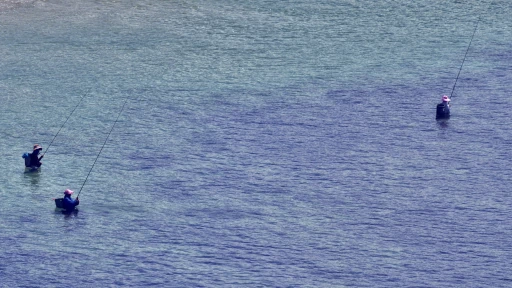Opinion Editorial Archive April, 2023: State of the Onion

A week ago, we published a new travel story about the indigenous Rungus people of Kudat, Malaysia. The final photograph in that article is alarming. Most Rungus people make their living from fishing. Yet the photo shows the harbor where they live overwhelmingly littered with plastic bottles.
It is a sign of the times. Last month, four months after that photo was taken, scientists writing in the journal PLoS ONE estimated that there are now over 170 trillion particles of plastic in the world's oceans. Timely also, then, was last month's agreement to the High Seas Treaty, which aims to protect 30% of our oceans from this kind of threat, and the United Nations' adoption of a resolution to seek legal input on climate justice.
Nobody questions whether our oceans are too big to fail. That would be like questioning whether humanity is too big to fail. Yet, according to a report by the Global Commission on the Economics of Water last month, the planet's water supply will fail unless we take immediate action — with fresh water demand exceeding supply by 2030.
Ever since the Earth was known to contain layers (core, mantle and crust) the onion has been used as a metaphor for it. In that case, the state of the onion is now worse than it has ever been.
Films like the 1968 animated short, Cosmic Zoom, reveal that the onion metaphor can be extended well outside the Earth's crust. It should not surprise us that the dire prognosis for the state of the onion likewise extends. We know about our pollution of the atmosphere, but, last month, scientists called for an urgent new treaty to protect the space beyond it known as Low Earth Orbit. We have placed so much junk there that it also now threatens humanity.
As though it weren't enough to pollute beyond our own planet, last month saw the announcement of continued funding for a project that would have us place a reactor and spent nuclear fuel on the moon in about another ten years. I wonder how long it will be before we need a new treaty to protect the moon.
I took this month's photo close to Kudat — although the men pictured fishing in the South China Sea are indigenous Bajau. Most people who live in such parts of the world know that the fishing industry is too big to fail. Although they practice a form of Quantitative Tightening (by avoiding overfishing), there is no bureaucracy by which the fish themselves can be subjected to Credit Default Swaps, Collateralized Debt Obligations and the like.
A food metaphor can also be used for the global financial system — spaghetti. It is ironic that we have to use artificial tools like interest rate increases to control price inflation by forcing reduction of demand. As we saw last month in Argentina, Haiti, Sri Lanka and the United Kingdom, such measures do not apply to food demand.
Paraphrasing one of Akin's Laws of Spacecraft Design: economic policy without numbers is only an opinion. As we saw with last month's mini banking crisis, we usually get the numbers too late. Bureaucracies like the major central banks are, at best, experimenting, but not learning from the results of their experiments. Perhaps if they asked the simple question 'is humanity too big to fail?' they would have something to guide their efforts in the right direction.
If you enjoyed reading this month's opinion editorial, please consider supporting independent, advertising-free journalism by buying us a coffee to help us cover the cost of hosting our web site. Please click on the link or scan the QR code. Thanks!

